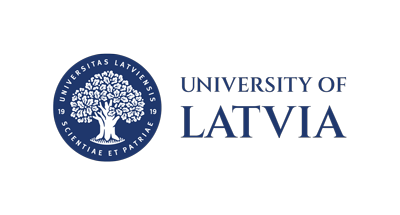Competiveness from Contextualisation of Supply Chain Knowledge
DOI:
https://doi.org/10.37380/jisib.v2i2.40Keywords:
Knowledge management, supply chain, competitiveness, contextualisation, diagnosisAbstract
This paper provides a discussion about the need of a continuous contextualisation of knowledge practices in organisations. Also, a proposal of a knowledge representation to contextualize and diagnose supply chain knowledge is presented. The proposed knowledge representation is a codification to incorporate context in a way that some form of diagnosis of supply chain practices can be carried out, which could reveal possible favourable and unfavourable effects of practices in a supply chain. In addition, this paper has been constructed in Excel® as a prototype, with the aim of being used in workplaces to support decisions making in SMEs supply chains. For this investigation, a number of best practices have been analysed. Also, focus groups and individual interviews to operations managers, from global, small and medium enterprises, have been carried out. Subsequently, it has been possible to integrate the proposed coding representation to enable a contextualisation and diagnosis of supply chain knowledge.References
Adeli, H. (1990). Knowledge Engineering. Ohio, US: McGraw-Hill.
Ahmadi, F., and Shirzade, J. (2011). Identify factor that impact on develop of knowledge Management in Automobile Industry. [Article]. Interdisciplinary Journal of Contemporary Research in Business, 2(10), 327-340.
Ahumada-Tello, E., Zárate Cornejo, R. E., López, I. P., and Alberto Perusquia Velasco, J. M. (2012). Modelo de Competitividad Basado en el Conocimiento: El Caso de las Pymes Del Sector De Tecnologías De Información Enbaja California. (Spanish). [Article]. Productivity Model Based On Knowledge- The Case of the Information Tecnology Pymes In Baja California. (English), 5(4), 13-27.
Barki, H., and Pinsonneault, A. (2005). A model of organizational integration, implementation effort, and performance. Organization science, 16(2), 165-179.
Bessant, J., Kaplinsky, R., and Lamming, R. (2003). Putting supply chain learning into practice. International Journal of Operations and Production Management, 23(2), 167.
Christopher, M. (1992). Logistics and Supply Chain Management (2nd ed.). London. Desouza, K., and Chattaraj, A. (2003). Supply chain perspectives to knowledge management: research propositions. Journal of Knowledge Management 7(3), 129-138.
Grant, D., Lambert, D., Stock, J., and Ellram, L. (2006). Fundamentals of Logistics Management: Mc Graw Hill.
Hoek, R. I. (2006). Agile Supply Chain. Bradford: Emerald Group Publishing Ltd.
Hult, T., and Ketchen, D. (2005). Knowledge as a strategic resource in supply chains. Journal of operations management, 24, 458-475.
Huselid, M. (1995). The Impact of Human Resource Management Practices on Turnover, Productivity, and Corporate Financial Performance. The Academy of Management Journal, 38(3), 635-672
Lambert, D. M., and Cooper, M. C. (2000). Issues in Supply Chain Management. Industrial Marketing Management, 29(1), 65-83.
Radding, A. (1998). Knowledge Management: Succeeding in the Information-Based Economy (1st ed. Vol. 1). South Carolina: Computer Technology Research Corporation.
Stewart, G. (1997). Supply-chain operations reference model (SCOR): the first cross-industry framework for integrated supply-chain management. Logistics Information Management, 10(2).
Swan, J., Newell, S., and Robertson, M. (1999). The illusion of 'best practice' in information systems for operations management. European Journal of Information Systems, 8(4), 284.
Thomas Choi, J. B., Norbert Wank. (2004). Intellectual property management: a knowledge supply chain perspective. Business Horizon, 47(1), 37-44.
Tracey, M., Vonderembse, M. A., and Lim, J.-S. (1999). Manufacturing technology and strategy formulation: keys to enhancing competitiveness and improving performance. Journal of Operations Management, 17(4), 411- 428.
Trent, R. J. (2008). End-to-end lean management. A guide to complete supply chain improvement. U.S.A.: J. Ross.
Ungan, M. (2004). Factors affecting the adoption of manufacturing best practices. Benchmarking: An International Journal, 11(5), 504 - 520.
Weber, R., Aha, D. W., and Becerra-Fernandez, I. (2001). Intelligent lessons learned systems. Expert Systems with Applications, 20(1), 17-34.
Downloads
Published
Issue
Section
License
Copyright (c) 2012 Journal of Intelligence Studies in Business

This work is licensed under a Creative Commons Attribution-NonCommercial-NoDerivatives 4.0 International License.
Authors who publish with this journal agree to the following terms:
- Authors retain copyright and grant the journal right of first publication with the work simultaneously licensed under a Creative Commons Attribution License that allows others to share the work with an acknowledgement of the work's authorship and initial publication in this journal.
- Authors are able to enter into separate, additional contractual arrangements for the non-exclusive distribution of the journal's published version of the work (e.g., post it to an institutional repository or publish it in a book), with an acknowledgement of its initial publication in this journal.
- Authors are permitted and encouraged to post their work online (e.g., in institutional repositories or on their website) prior to and during the submission process, as it can lead to productive exchanges, as well as earlier and greater citation of published work (See The Effect of Open Access).








